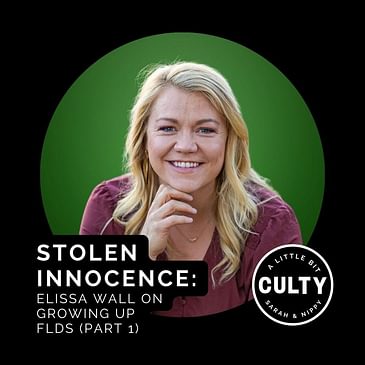This episode is sponsored by BetterHelp. Many people became aware of the horrors taking place within the Fundamentalist Church of Jesus Christ of Latter Day Saints (if you were really in touch with God s/he’d have given you a better name) after watching Keep Sweet: Pray and Obey on Netflix. Our guest on today’s show, Elissa Wall, had to live through them.
Born into a polygamous family within Salt Lake City, Utah’s FLDS—which is how we’ll be referring to it from here on out— Wall was only 14 when church leaders orchestrated a marriage between the child and her 19-year-old cousin, Allen Steed. Unfortunately, such marriages were insanely frequent within the church, with girls as young as 12-years-old being groomed and forced to marry older men. Much of this is thanks to human trash can Warren Jeffs, president and prophet of the FLDS, who can also add convicted child rapist to his list of titles. At one point, Jeffs had 78 “wives,” 24 of whom were children. Now, he’s serving life in prison, with no small help from Elissa Wall.
Wall’s autobiography is titled, Stolen Innocence: My Story of Growing Up in a Polygamous Sect, Becoming a Teenage Bride, and Breaking Free of Warren Jeffs. The book became a New York Times bestseller and is a fascinating but heart wrenching look into the truly fucked up world of Warren Jeffs.
Stay tuned for part 2 on Thursday.
Also…
Hear Ye, Hear Ye:
The views and opinions expressed on A Little Bit Culty do not necessarily reflect the official policy or position of the podcast. Any content provided by our guests, bloggers, sponsors or authors are of their opinion and are not intended to malign any religion, group, club, organization, business individual, anyone or anything. Nobody’s mad at you, just don’t be a culty fuckwad.
Other Links:
Check out our lovely sponsors
Join ‘A Little Bit Culty’ on Patreon
Get poppin’ fresh ALBC Swag
Support the pod and smash this link
Cult awareness and recovery resources
CREDITS:
Executive Producers: Sarah Edmondson & Anthony Ames
Production Partner: Citizens of Sound
Producer: Will Retherford
Senior Producer: Jess Tardy
Writer: Mathias Rosenzweig
Theme Song: “Cultivated” by Jon Bryant co-written with Nygel Asselin
Learn more about your ad choices. Visit megaphone.fm/adchoices

